For thousands of years, Indigenous fare has always been innately connected. The soul of its people continues to be reflected in the ingredients used and the dishes prepared. Rooted in family and inspired by the land, Indigenous chefs from across the country are telling the everlasting stories of their ancestors and inspiring proud, future generations of chefs eager to share their passion, showcase their rich history and continue a timeless tradition of connectivity through food.
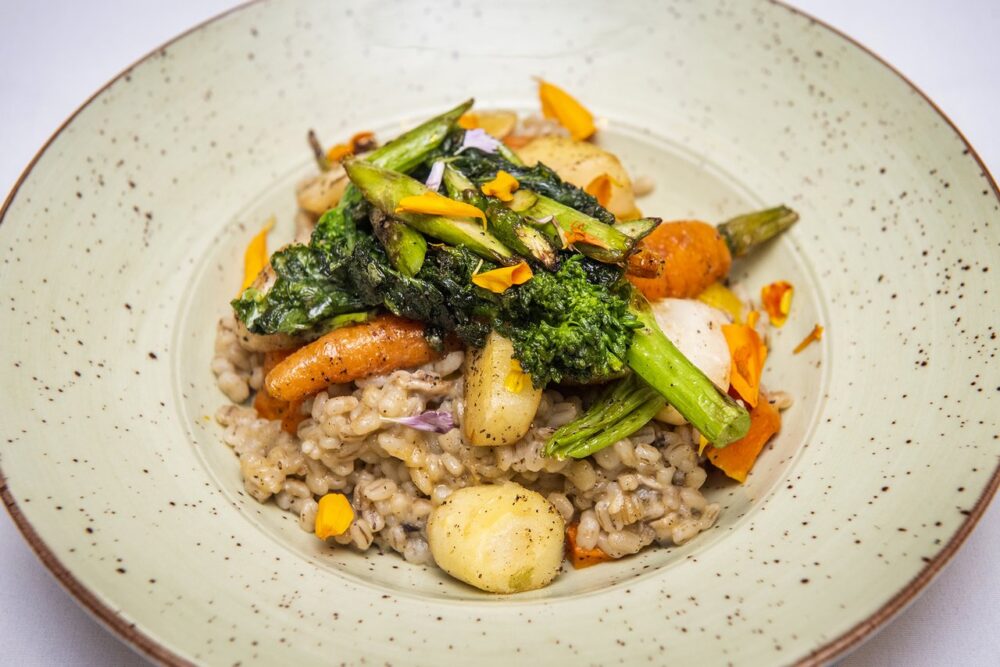
Dish by Joseph Shawana. Photo courtesy Indigenous Tourism Canada.
Siobhan Detkavich
One day can make all the difference. At 15, Siobhan Detkavich moved from Nanaimo to Oliver, BC and while at school, guidance counsellors presented her with an opportunity to explore the culinary arts. She jumped at it, and today reaps the rewards of that decision. Now 21, the Cowichan Tribes Band member is not only a chef de partie at The Terrace Restaurant, Mission Hill Family Estate in Kelowna, BC, but in 2021, she became the youngest ever competitor on Top Chef Canada.
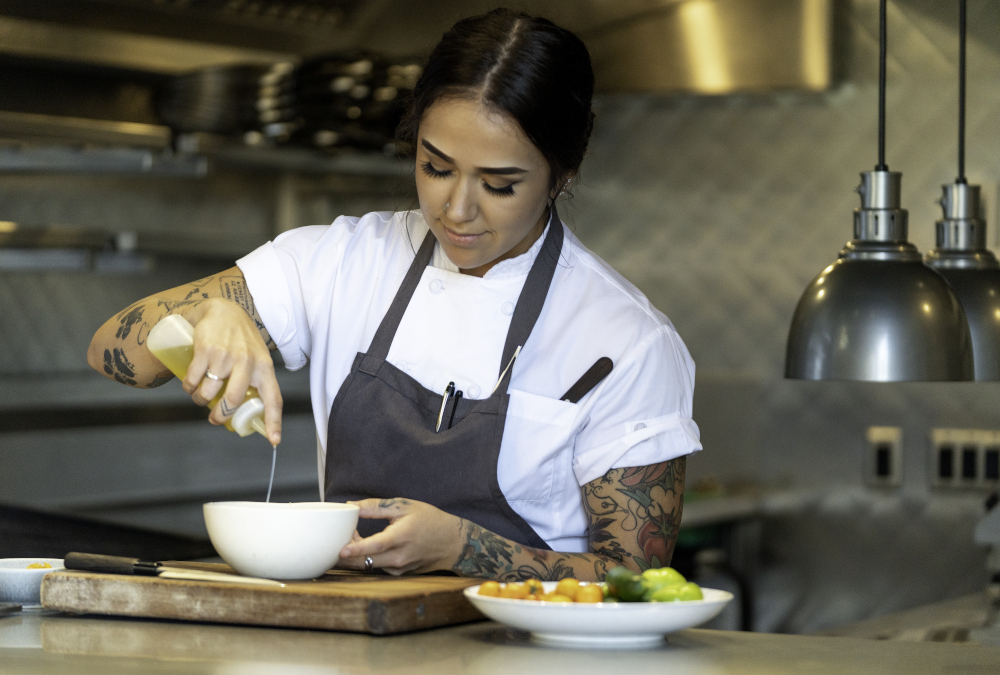
Siobhan Detkavich. Photo courtesy Mission Hill Family Estate
Humble yet hungry, Siobhan’s youth, energy and resilience has allowed her to climb the ranks, going from dishwasher to national TV in no time, opening doors along the way and letting her culinary passions flow freely. She continues to cultivate her niche, cooking and creating with purpose. In turn, this has showcased the accessible beauty and flavour of Indigenous culture and food, while simultaneously shattering narrow and stereotypical perceptions of what Indigenous food is all about.

Photo courtesy Siobhan Detkovich
Already a role model whether she’s comfortable with that or not, Siobhan believes cooking for reconciliation and sovereignty are important, and doesn’t hesitate to consistently delve deeper into her cultural background. She understands the power food has to not only preserve her culture, but to celebrate it and ensure that it perseveres.
Joseph Shawana
Born and raised in Wikwemikog Unceded Indian Reserve on Manitoulin Island in Ontario, Joseph Shawana has always associated food with life itself. His influences growing up were his mother and grandmother; the duo he’d watch cook not only solidified his love of food and his understanding of food’s unifying power, but also inspired the name of the restaurant he opened in 2017.
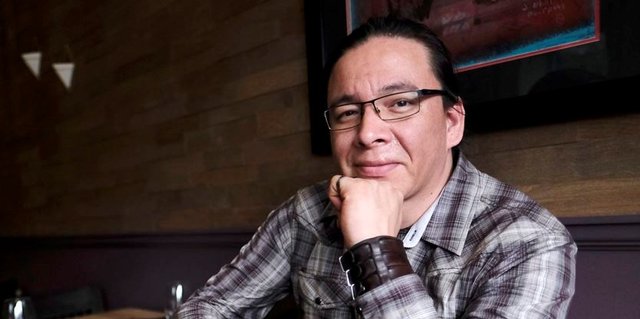
Joseph Shawana Photo courtesy Indigenous Tourism Canada
Kūkŭm, meaning ‘Grandma’ in Cree, was dedicated to making the most out of every ingredient and Indigenous dishes here were met with a French twist. Joseph based his menu on the 13 moons of the year and created dishes that reflected them, inspiring everyone to enjoy more meaningful dining experiences. And he did so in a welcoming, intimate and open environment, reminiscent of his upbringing, capturing the true essence of the land and its people.
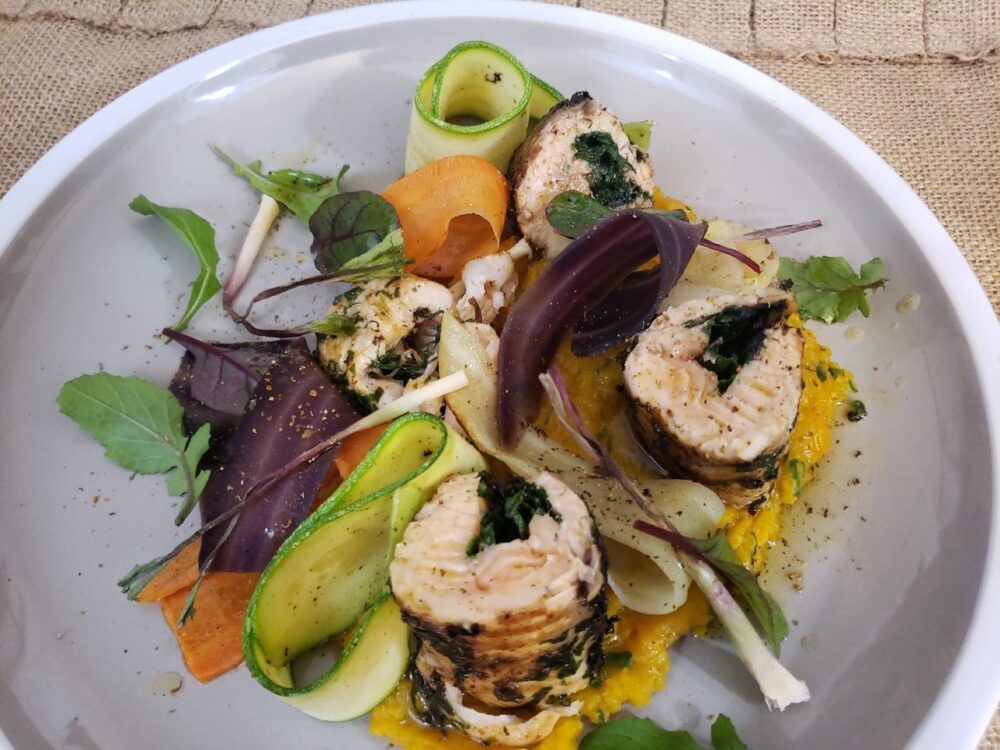
Photo courtesy Indigenous Tourism Canada
Chair of Indigenous Culinary of Associated Nations and a professor at Centennial College in Toronto, Joseph has been named a top 10 chef in Ontario, is a ‘best world cuisine’ award-winner, an acclaimed leader in its purest form and a passionate proponent and leader of respecting the land, learning from elders and amplifying history through food.
Scott Iserhoff
He may have grown up in Timmins, Ontario but his heart and soul are one with Attawapiskat, 500 kilometres to the north. An isolated community hugging the west coast of James Bay, it was there, in the land of the Mushkego, that Scott Iserhoff was constantly surrounded by family and food. Whether he knew it or not, those early years of absorbing valuable knowledge about culinary traditions, including hunting, trapping and cooking over the fire, ignited his passion.
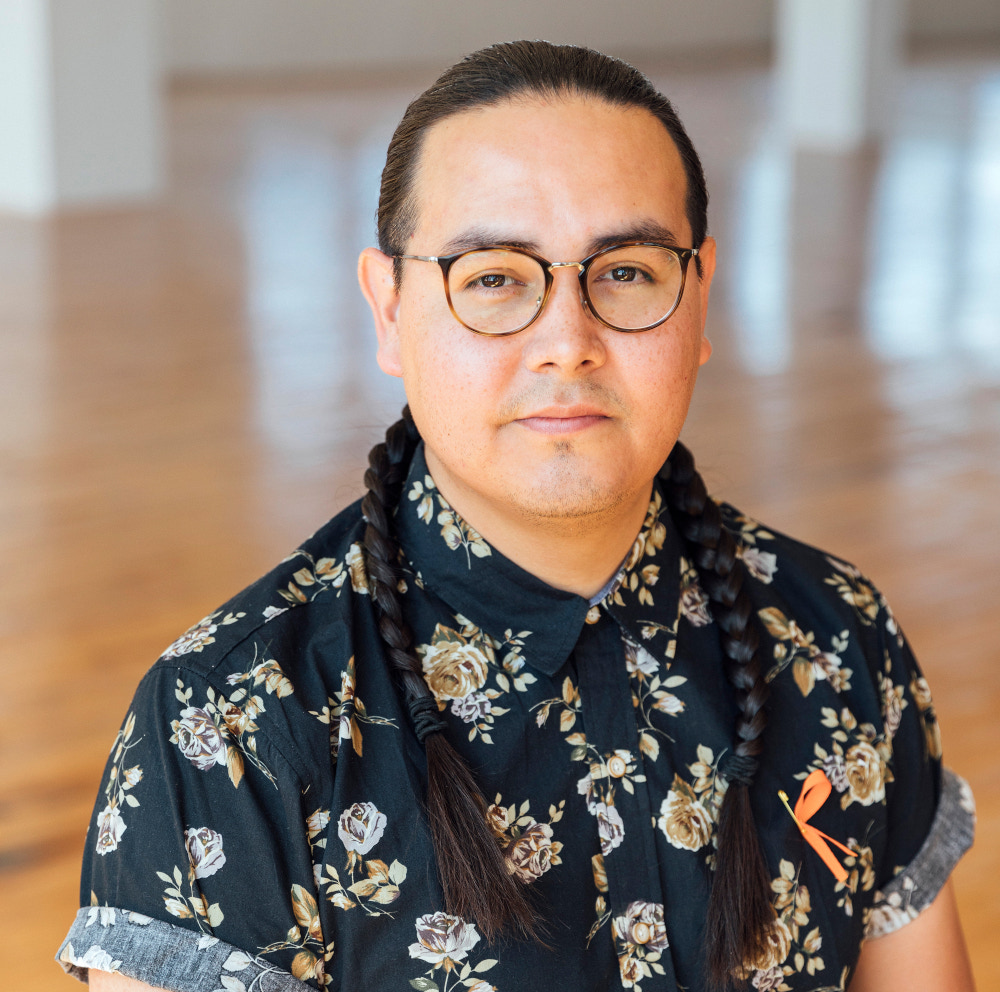
Scott Iserhoff. Photo by Noella Steinhauer
By his teens, Scott made up his mind about becoming a chef after watching Cooking with the Wolfman, starring chef David Wolfman, the internationally recognized Indigenous cuisine guru and member of the Xaxli’p First Nation in BC. He followed his dream, attending Fanshawe College Culinary School in London, Ontario before working in Toronto’s hectic restaurant scene. After more than a decade, he was tired, ready for a change and eager to return to his Cree cooking roots where ingredients are gathered and dishes are prepared with purpose.
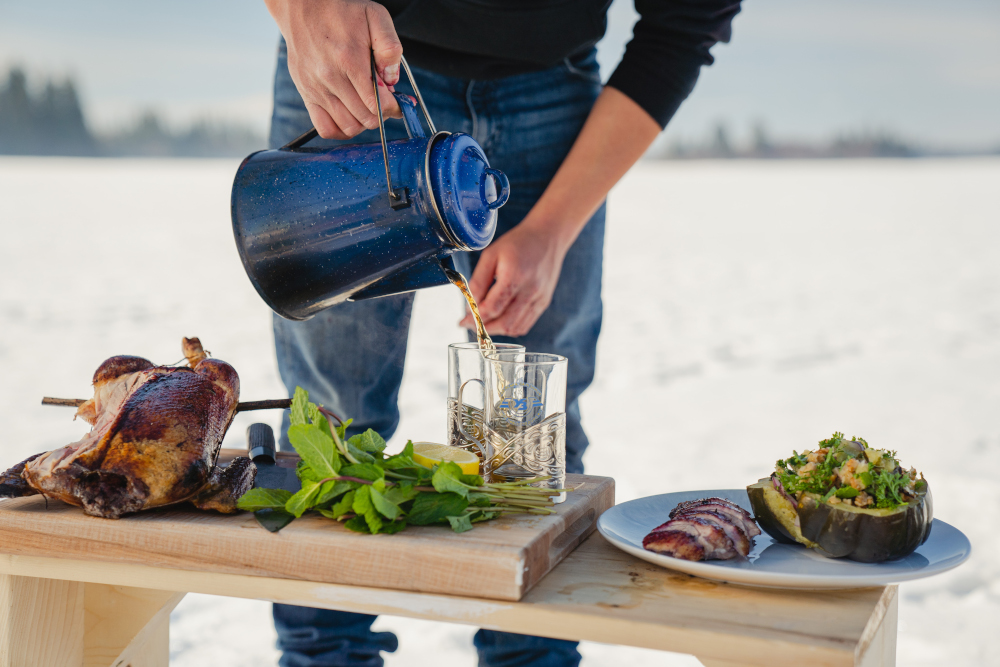
Traditionally smoked duck over the fire with roasted squash and harvested Labrador tea. Photo by Roam Creative courtesy Tourism Alberta
Scott looked west, got a job as a kitchen coordinator in Edmonton and quickly earned a reputation as not only a prominent chef, but one who, through his dishes, generated nostalgia for those young and old yearning for Indigenous flavours of days gone by. Since 2017, Scott has owned and operated Pei Pei Chei Ow (“Robin” in the Swampy Cree language, and the name his grandpa gave him as a young boy) and a catering company that not only features contemporary Indigenous fare, but is home to cultural events and community dinners.
Jenni Lessard
Jenni Lessard wasn’t your average 14-year-old. Growing up in Lamp Lake, just north of La Range, Saskatchewan, Lessard ambitiously borrowed a trailer from the Kikinahk Friendship Centre and opened her first food business, a burger stand, with two friends at the local airport. Since, the award-winning chef and caterer has garnered a reputation of class and excellence, featuring beloved Saskatchewan ingredients and creating exceptional fare known and savoured the world over.
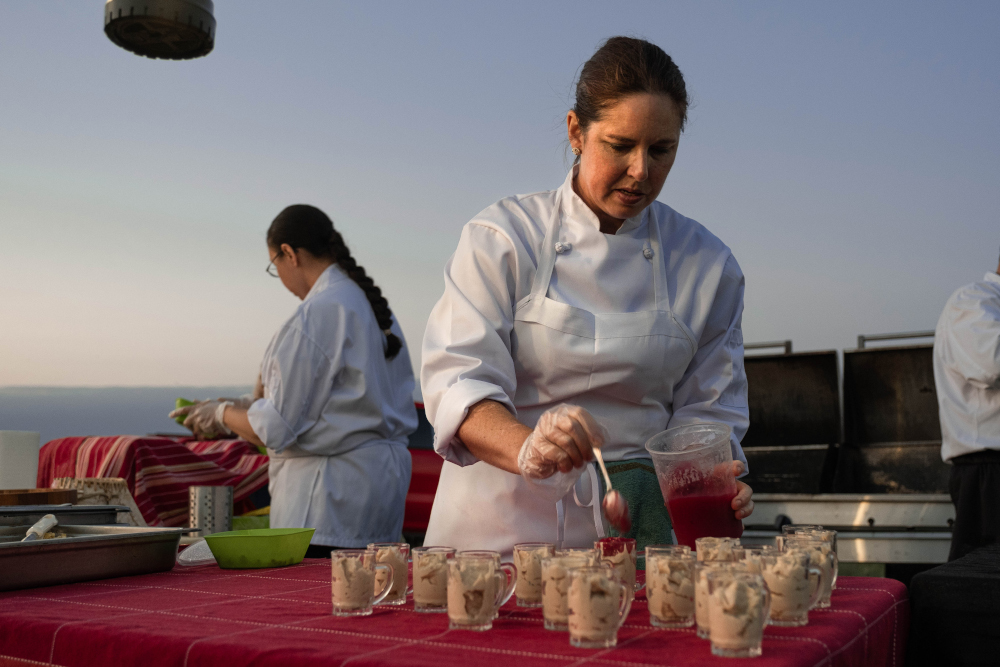
Jenni Lessard. Photo courtesy Tourism Saskatchewan
In 2019, she not only became the first Métis Executive Chef, but also the first female to lead the kitchen at Wanuskewin Heritage Park, a National Historic Site in Saskatoon. More recently, Jenni is the Indigenous Culinary Consultant at Wanuskewin and leads engaging and meaningful culinary experiences such as the Han Wi dinner series featuring bison. These transformational meals on the land reflect not only Saskatchewan’s rich, local ingredients but also how they’re used to preserve and promote education, sustainability and unity, including and especially as it relates to her Metis heritage.
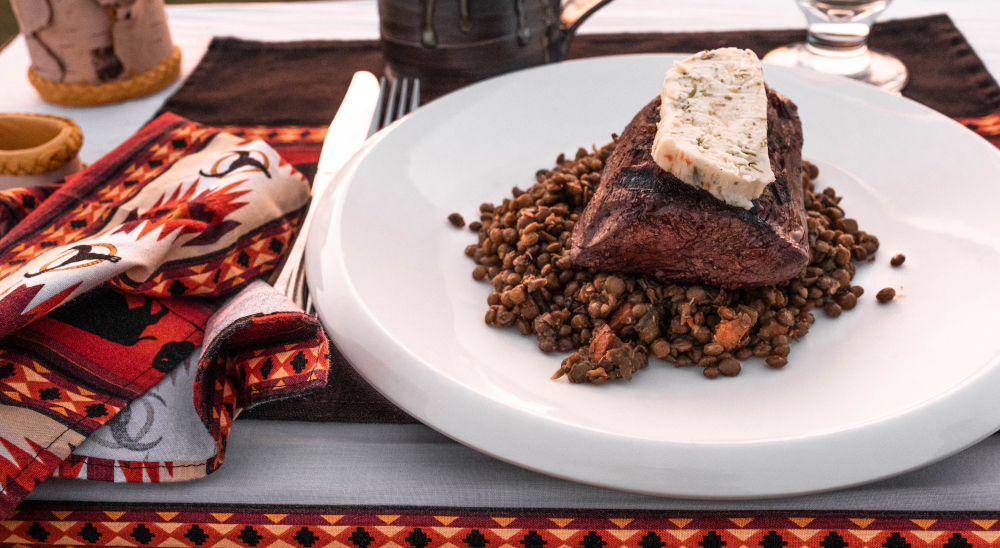
A bison dish by Jenni Lessard. Photo courtesy Tourism Saskatchewan
Thanks largely to Jenni’s creative culinary sense, her love of the land and passion for what grows and thrives on it, UNESCO is set to inscribe Wanuskewin with a World Heritage Designation (a first for Saskatchewan) in 2022. It’s estimated that this sacred site and gathering place sees 40,000 people experience it annually. That number will certainly rise sharply when Wanuskewin receives the international attention it deserves.
Don’t miss: How Food Tourism is Feeding Understanding of Canadian Indigenous Culture
Jim Bamboulis
Latest posts by Jim Bamboulis (see all)
- 4 Indigenous Chefs on the Rise in Canada - October 21, 2021








No Responses to “4 Indigenous Chefs on the Rise in Canada”